We're celebrating the artisans, writers, makers, and more who make up the diverse and inspiring world of food.
Today: Steve Sando, the founder of Rando Gordo -- now in the FOOD52 Shop! -- travels Mexico far and wide in search of the best heirloom beans, corn, and chiles.

Steve Sando is serious about good food. He's so serious that when he couldn't find quality dry goods (beans, rice, herbs, and more), he decided to go after them himself. And so Rancho Gordo New World Specialty Food was born, a haven for bean lovers and chili chefs alike. Rancho Gordo's success lies partially in Sando's wanderlust -- he's always on the lookout for new growers everywhere, from his native California to Central and South America.
Find Rancho Gordo beans, chocolate, and salt in the FOOD52 Shop, and be sure to check out Sando's cookbook, Heirloom Beans: Recipes from Rancho Gordo. In today's Supply Chain, we follow Sando around Mexico to learn more about the farmers that he works with, and learn that encouraging traditional agriculture is changing more lives than you might think.
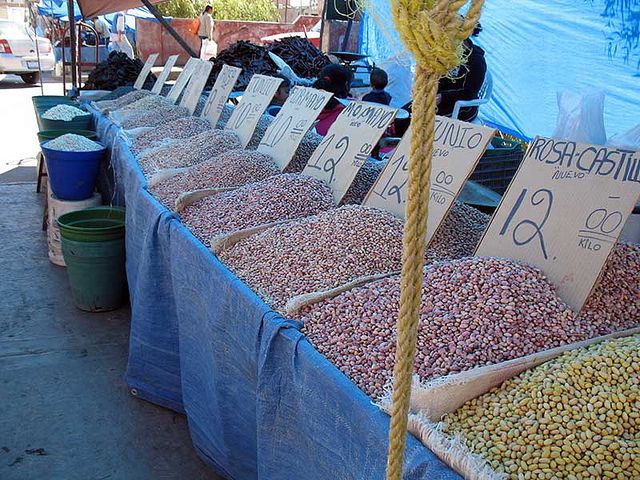
- Steve
My idea of a good time is going to a new rural market in Mexico. I love the smells and the sounds -- and of course, the food is essential. You see and eat things that you just don't get anywhere else. Of course, my main goal is hunting for new heirloom beans. When I see sights like this I get excited, but my heart also breaks just a little. How can I get all these beans back to the US?
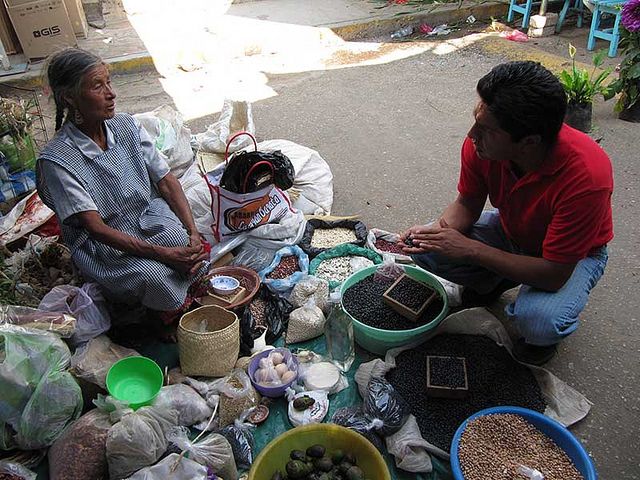
The best beans are often not in the mercados (markets) at all, but along the edges. Indigenous women will bring only what they can carry and often they have beans I've never seen. It's normal for me to "strike gold" and find a bean treasure.
A few years ago I met my business partners, Yunuen and Gabriel. Their company, Xoxoc, was set up for exporting their sour prickly pear snacks, and when I mentioned heirloom beans, at first they were very suspect. The market for heirlooms was shrinking in Mexico. How could there be any interest in the US? I pushed, they did some research, and without a lot of trouble, we've found a number of great farmers who farm the old-fashioned way, growing beans, corn, and chiles that have been in their family for generations. We decided to market our joint efforts as the Rancho Gordo-Xoxoc Project. It started out as a way to import heirloom beans, but now we're looking into all kinds of traditions that are losing ground and seeing if we can't help.
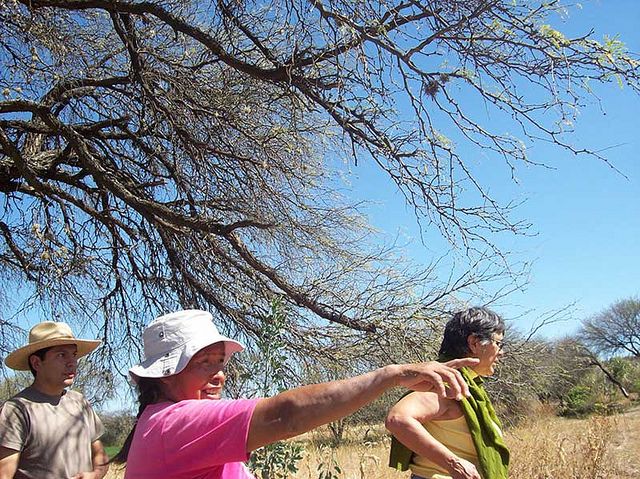
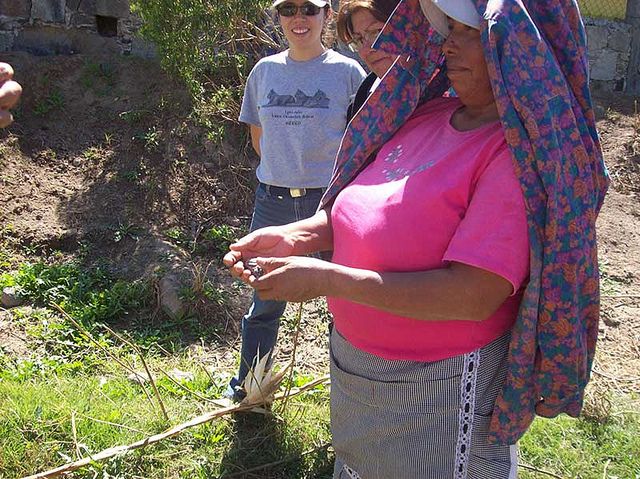
One of my favorite farmers is Maria. She lives by herself, and with the exception of having her field tilled at the beginning of the season, she does the rest by hand, all by herself. She was doing all right, selling what she could carry at the market, but now that we're buying her stock through the Rancho Gordo-Xoxoc Project, she's had to get additional help.
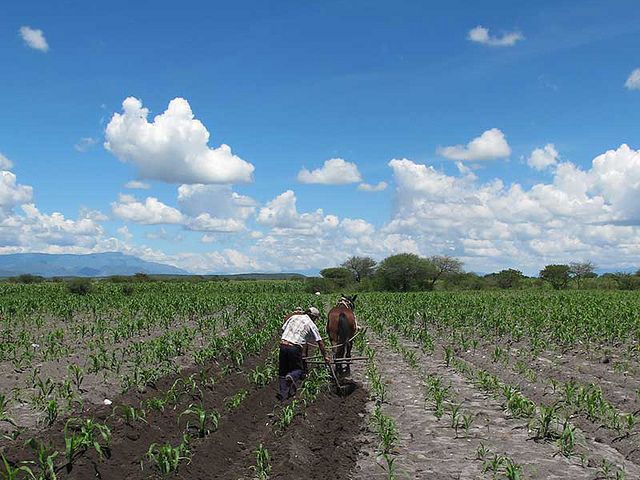
This help came in the form of her grandson, who was on his way to the United States. Instead, he's working with Maria on their land, growing their beans and making a nice profit.
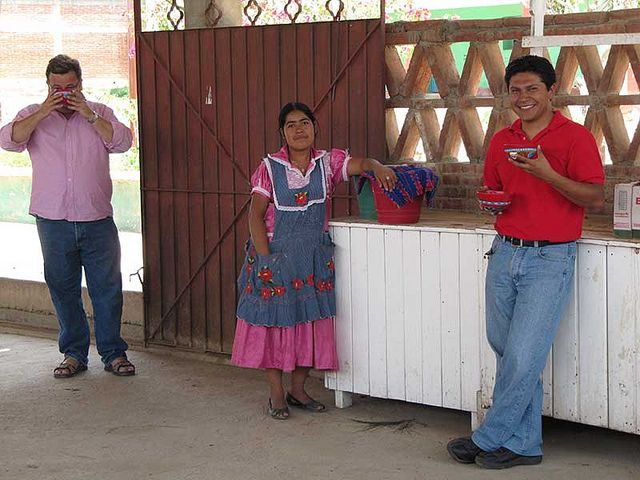
When I met Maria, she insisted that I drink the good, clean irrigated water she paid for. She was proud to be using fresh water instead of the "black water" that was prevalent. I wanted to please her, but I hesitated. As a gringo, I wasn't keen on drinking hot well water in Mexico, no matter how clean it was supposed to be. But I did to make her happy. It tasted just as you'd suspect: lousy. But it helped Maria to trust me and for us to become friends. Indigenous people tend to shy away from "robust" middle-aged men from the US. In business, they normally don't come out ahead.
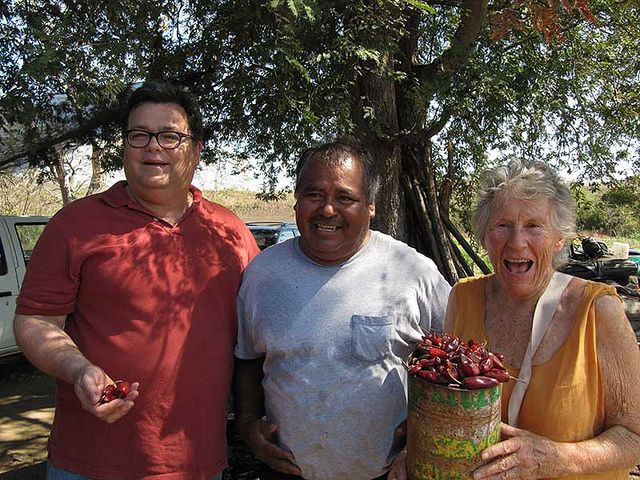
We've focused our attention on farms in the states of Hidalgo, Oaxaca, Querétaro, and Yucatán. As much as I loved visiting the mercados, seeing these small agricultural towns is beyond my wildest dreams.
I'm also working with farmers that Diana Kennedy met when she was writing her seminal Oaxaca al Gusto, a huge book in tribute to Oaxacan cuisine that is very hard to cook from, as the chiles are specific and unavailable for the most part in the US. We're working with the farmers to help with the yields and to create a market so they can increase the number of acres dedicated to heirloom chiles and beans.
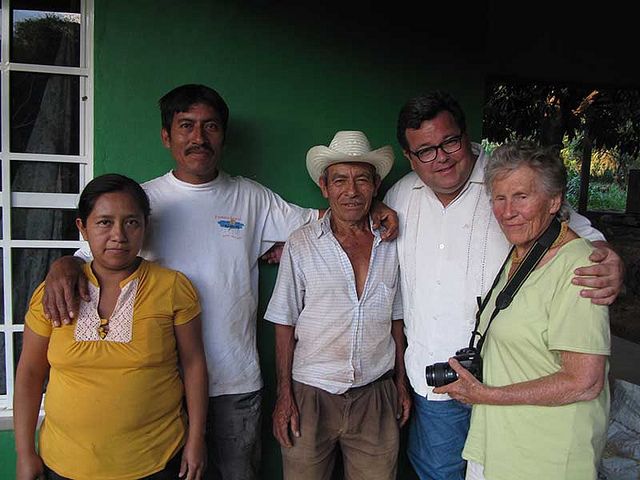
Another group we're working with is a cooperative in the Huasteca region of San Luis Potosí. These guys have a granulated piloncillo. Normally this unrefined sugar is sold in hard-to-work-with cones, but they've discovered a technique to keep it granulated. They used to slash and burn the sugar fields, but now they let the canes grow back. It's more dangerous because of snakes, but they understand that this is their land and they want to care for it.
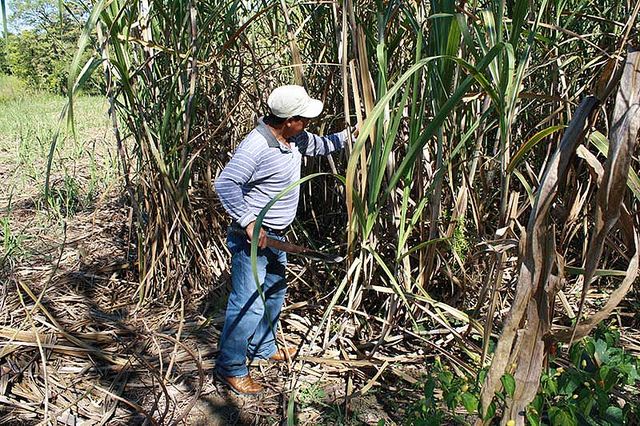
My favorite growers are in Hidalgo. They were dirt poor and like a lot of Mexicans, confused why their wonderful food wasn't being appreciated. They knew it was superior, but the markets dictated that they should give up their heritage beans and grow industrial hybrids for the superstores and export. One taste of their beans and you know that someone is getting it all wrong.
I met the growers, and we had an incredible party with a pit-roasted lamb. Afterwards they said they wanted to thank me. Because of this project, they didn't have to become masons or builders, or make the dangerous trip to the US. I started blubbering. Thank me? Because of them we got these incredible beans at a fair price. I was thanking them and before you know it, it was a big love fest. Whatever side of the political fence you are on, the biggest problem is there aren't enough jobs for the men. Some would suggest our policies are in part to blame, but just the fact that we're neighbors is enough for me to work on a common solution. If they can remain farmers and we get to eat like kings, everyone wins. And it's not that hard. It makes me wonder what other problems are right under our noses, ready to be solved over a delicious lamb roast.
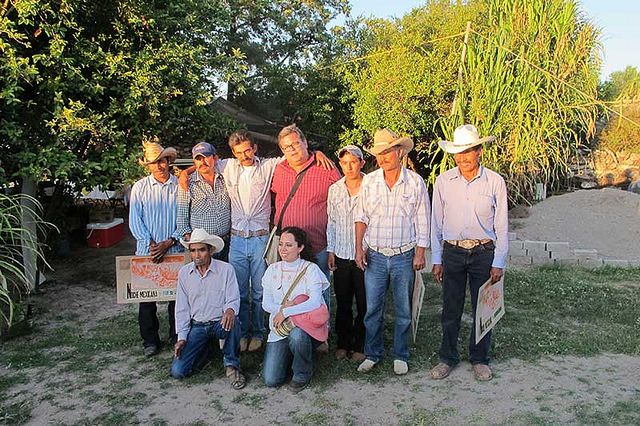












See what other Food52 readers are saying.